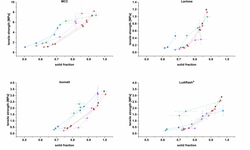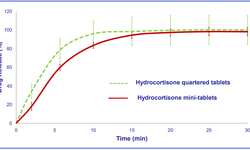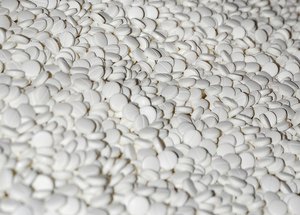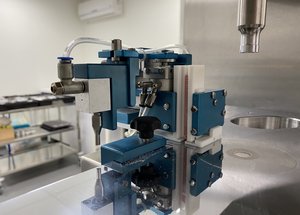Scientific papers
There is considerable interest in formulating tablets with botanical materials, primarily due to their compactness and ease of administration. However, the tableting of coarsely milled botanical materials presents challenges owing to poor tableting properties. The objective of this study was to assess the feasibility of utilizing wet granulation for tablet production from coarsely milled botanical materials and to examine the impact of formulation on tablet properties.
Cinnamon bark and areca nut were milled to achieve a particle size of 1–2 mm, subsequently utilized in wet granulation with maltodextrin solution as the granulating liquid. Two diluents were tested: microcrystalline cellulose (MCC) and mannitol, at varying ratios to the botanical materials. Tablets were then manufactured from the granules and evaluated for tensile strength and surface roughness.
The results revealed that tablets formulated with MCC exhibited higher tensile strength compared to those formulated with mannitol. Furthermore, granules prepared with mannitol displayed greater friability than those containing MCC. The impact of the diluent to botanical material ratio was more noticeable on tablet surface roughness. Tablets with a higher ratio of botanical material exhibited a rougher surface, potentially influencing the mouth-feel of the tablets.
In conclusion, wet granulation emerges as a viable pre-processing method for tablet production from coarsely milled botanical materials.
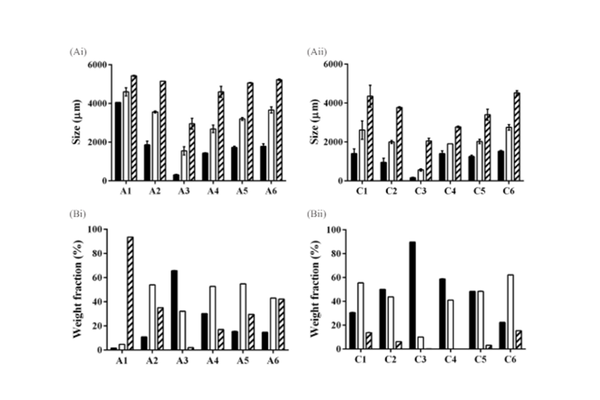
Comments
No comments posted yet.
Add a comment

